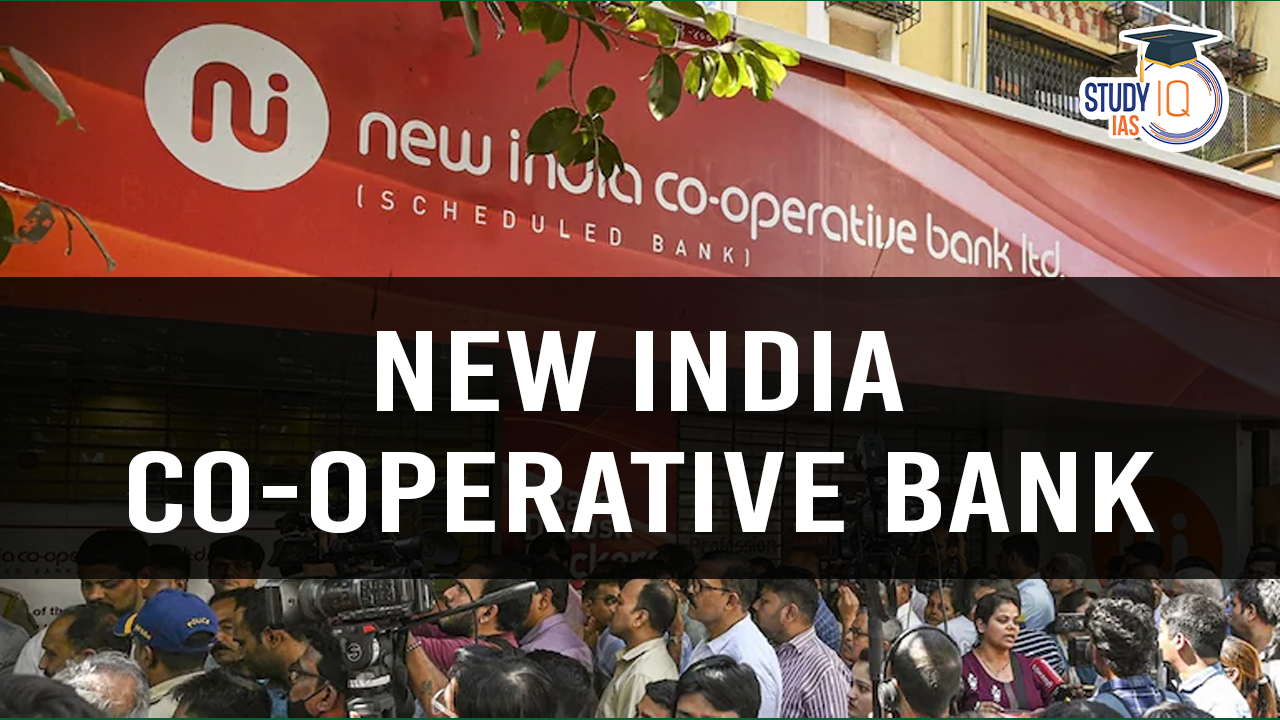Table of Contents
The Reserve Bank of India (RBI) has imposed severe restrictions on New India Co-operative Bank, barring it from issuing new loans, accepting fresh deposits, or allowing withdrawals for six months. The central bank cited governance issues and financial instability as the primary reasons behind this decision. The move has triggered panic among depositors, many of whom are concerned about their savings and pending financial commitments.
Key Highlights of RBI’s Directive
- Loan and Deposit Ban: The bank cannot issue new loans or accept fresh deposits from customers.
- Withdrawal Restrictions: Depositors cannot withdraw money from their accounts for six months.
- Administrator Appointment: RBI has removed the board and appointed Shreekant, a former SBI Chief General Manager, as the Administrator for a period of 12 months.
- Committee of Advisors: A three-member advisory committee has been set up to assist the Administrator.
- Deposit Insurance Protection: Depositors are eligible to claim up to ₹5 lakh under the Deposit Insurance and Credit Guarantee Corporation (DICGC) scheme.
Why Did RBI Impose Restrictions?
The RBI intervened due to serious governance failures and financial mismanagement within the bank. Some of the key reasons include:
1. Financial Instability
The bank’s liquidity position had significantly deteriorated, making it difficult to meet depositor withdrawals and other financial obligations.
2. Governance Issues
The bank’s board failed to ensure transparency in financial reporting and management, leading to regulatory concerns.
3. Risk to Depositors’ Funds
With over ₹2,400 crore in deposits, the RBI found that the bank could not sustain its financial operations without immediate intervention.
Impact on Depositors and Customers
1. Withdrawal Issues
Customers cannot withdraw funds from savings, current, or fixed deposit accounts until further notice, creating panic among those relying on their funds for daily expenses and EMIs.
2. Limited Financial Transactions
The bank is also prohibited from renewing loans or making fresh investments, which affects businesses and individuals dependent on financial services.
3. Deposit Insurance Relief
To mitigate the impact, RBI has ensured that depositors can claim up to ₹5 lakh per depositor under the DICGC insurance scheme.
What Happens Next?
1. Administrator’s Role
The Administrator will manage daily operations and work on a potential recovery plan for the bank over the next 12 months.
2. Possible Merger or Liquidation
RBI may consider options such as merging the bank with a stronger financial institution or liquidating its assets to repay depositors.
3. Depositor Reimbursements
Eligible depositors can file claims with DICGC to receive up to ₹5 lakh per account holder in case the bank fails to revive itself.
What Should Depositors Do?
If you have deposits in New India Co-operative Bank, consider the following steps:
- Check DICGC Coverage: If your deposits are under ₹5 lakh, you are eligible for an insured payout.
- Stay Updated on RBI Announcements: Keep track of RBI’s future updates on the bank’s status.
- Plan Alternative Banking Options: Consider shifting future deposits to larger, well-regulated banks for better financial security.
Conclusion
The RBI’s restrictions on New India Co-operative Bank highlight the importance of financial governance and depositor protection. While the bank’s future remains uncertain, affected customers should explore DICGC insurance claims and alternative banking solutions to secure their funds. The coming months will determine whether the bank can recover or if a permanent resolution, such as a merger or liquidation, will take place.


 UDAN Scheme, Objectives, Funding and Ach...
UDAN Scheme, Objectives, Funding and Ach...
 Top 10 Economies in the World 2025, Chec...
Top 10 Economies in the World 2025, Chec...
 Minors Bank Account above 10 Years: Chan...
Minors Bank Account above 10 Years: Chan...





















